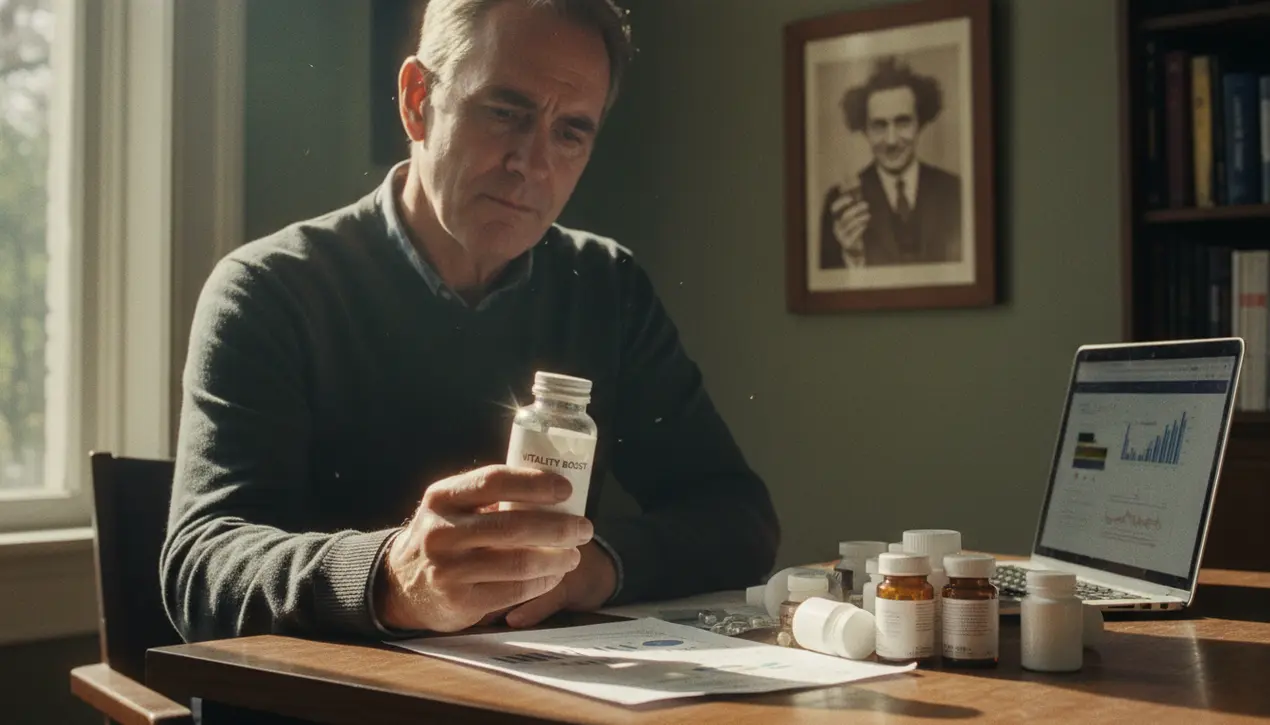
SciencemedicinePublic Health
What People Are Getting Wrong About Low Testosterone Prevalence
KE
Kevin White
2 hours ago7 min read
The conversation surrounding low testosterone has been hijacked by a modern alchemy of quick fixes, from unproven herbal supplements to more extreme historical interventions like goat gland transplants, a bizarre chapter from the 1920s that promised renewed virility. As a writer immersed at the intersection of biology and technology, I see this not just as a health trend, but as a profound case study in how societal pressures can outpace scientific understanding.The core issue is a diagnostic fog; the prevalence of true, clinically significant hypogonadism is often wildly overstated. Many men experiencing fatigue, low mood, and diminished libido are quick to self-diagnose based on a constellation of common symptoms, yet these are nonspecific and can be linked to a host of other factors including poor sleep, high stress, sedentary lifestyles, and nutritional deficiencies.The allure of a single, hormonal culprit is powerful, and it's a narrative aggressively marketed by a burgeoning direct-to-consumer wellness industry that often operates in a regulatory gray area. This creates a dangerous feedback loop where men, bypassing comprehensive medical evaluation, seek out 'T-boosters' whose efficacy is rarely backed by rigorous, peer-reviewed clinical trials.The science of testosterone is far more nuanced than these marketing campaigns suggest. It's a key regulator, yes, but its levels naturally fluctuate and decline gradually with age—a process distinct from a pathological deficiency.The rush to medicalize a normal aspect of male aging carries significant risks, including the potential side effects of unnecessary testosterone replacement therapy (TRT), which can involve erythrocytosis, sleep apnea, and cardiovascular concerns that are still being fully understood. Furthermore, this hyper-focus on a single hormone metric overlooks the intricate symphony of the endocrine system, where thyroid function, cortisol levels, and metabolic health all play critical roles.The future of addressing men's health legitimately lies not in goat glands or miracle herbs, but in the kind of precision medicine being unlocked by biotech advances—think CRISPR-based diagnostics and personalized hormone panels that consider an individual's unique genetic and physiological landscape. We are on the cusp of moving from blunt instruments to surgical tools, but until then, the public discourse must shift from a simplistic 'low T' panic to a more holistic, evidence-based conversation about overall well-being, one that prioritizes lifestyle medicine and proper clinical diagnosis over the siren song of a quick hormonal fix.
#low testosterone
#hormone health
#herbal supplements
#medical trends
#men's health
#lead focus news
Stay Informed. Act Smarter.
Get weekly highlights, major headlines, and expert insights — then put your knowledge to work in our live prediction markets.
Related News
Comments
Loading comments...
© 2025 Outpoll Service LTD. All rights reserved.